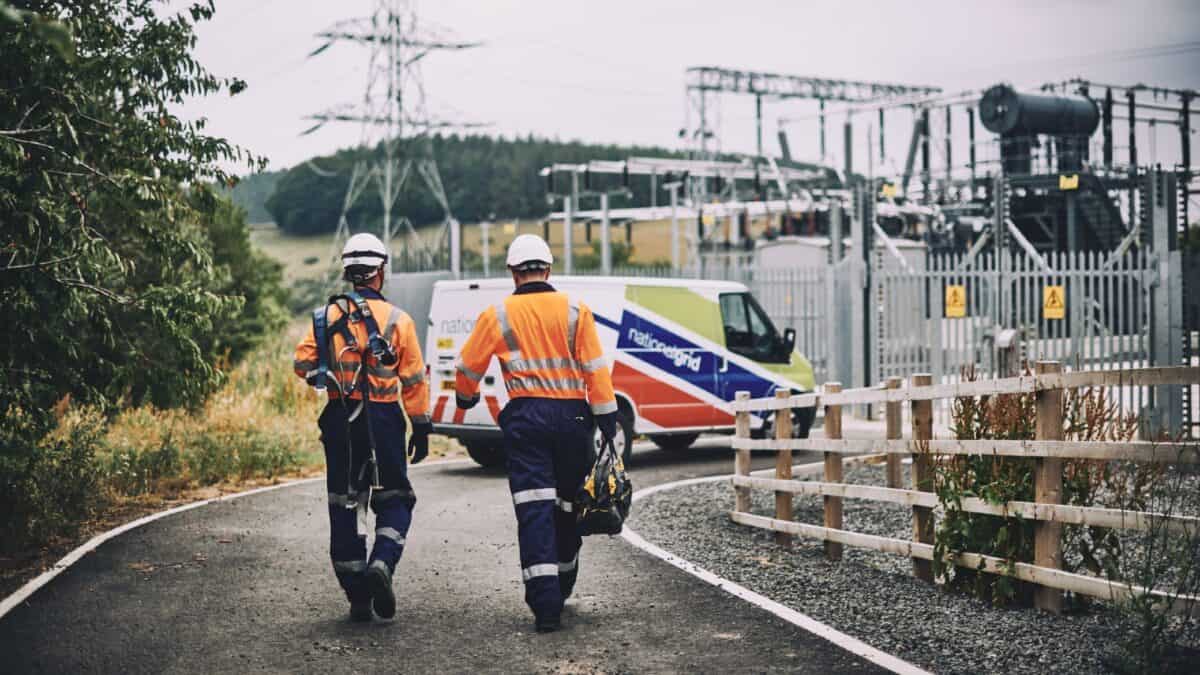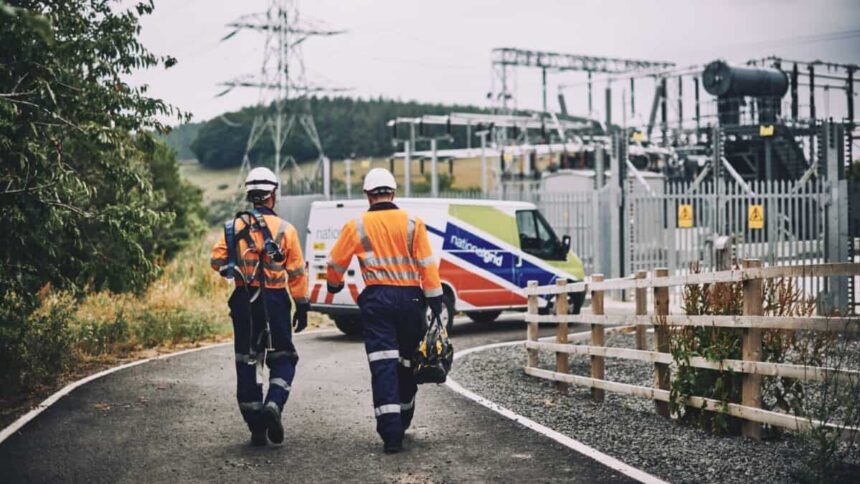
Image source: National Grid plc
The National Grid (LSE: NG) share price experienced a sudden crash last month that wiped 20% off the FTSE 100 stock in a few days. That’s a surprise for a stock that barely moves a few percent every month.
From 1,036p, it fell to a low of 838p on 29 May. It has since recovered a bit to 890p but remains down 12% over the month. Now I’m wondering if this is a good opportunity to grab some more shares while they’re cheap.
But what caused the crash and will it bounce back?
Tough decisions were made
The sudden dip occurred after the company’s board announced a £7bn equity raise through a rights issue. The UK’s key energy provider already has a lot of debt and now requires an additional £60bn to fund the next five years of investment.
But the rights issue diluted shareholders by increasing the company’s shares by 29%. This is what ultimately led to the crash. I’m sure it was a tough call to make and in the long run it’s likely to pay off and benefit the business. But for now, it comes at a cost to shareholders.
If the reaction to the news is temporary, the share price should recover in the coming weeks. But it also speaks of potential deeper issues at the energy firm. National Grid has always been considered a reliable defensive stock but now that image could be tainted. The share price has never been a huge climber but it has been stable, making the 6.9% dividend yield very attractive.
I only recently purchased some National Grid shares for my dividend portfolio so I’m watching developments closely. One positive sign I’ve seen is a Buy rating from Jefferies last week. The shares are already up 4.2% since then, so they might not be cheap for much longer>
The debt threat
The ease with which the company managed to raise equity speaks volumes about the trust of investors. And it’s in stark contrast to the troubles experienced by fellow UK utilities company Thames Water. Hopefully, it will go some way to alleviating concerns about a wider national infrastructure issue.
But debt remains a big risk for the company. At £47bn, it’s a very large elephant in the room. Particularly considering the market cap is only £42.7bn. Add to that a 12% decline in earnings before interest and tax (EBIT) over the past year and it’s worrying. But still, interest coverage at 3.8 times is comfortable enough that I don’t see the debt becoming a serious issue any time soon. And with the fresh injection of equity, I expect to see things improve in the near future.
My verdict
The dip in share price is not going to give investors a massive bargain, but for those who were looking to buy anyway, now might be a good time. Considering I bought my original shares at quite a higher price, it makes sense for me to use this opportunity to buy more and improve my average spend per share.
And with dividends now paying out at 57p per share, why wouldn’t I jump at that opportunity?











